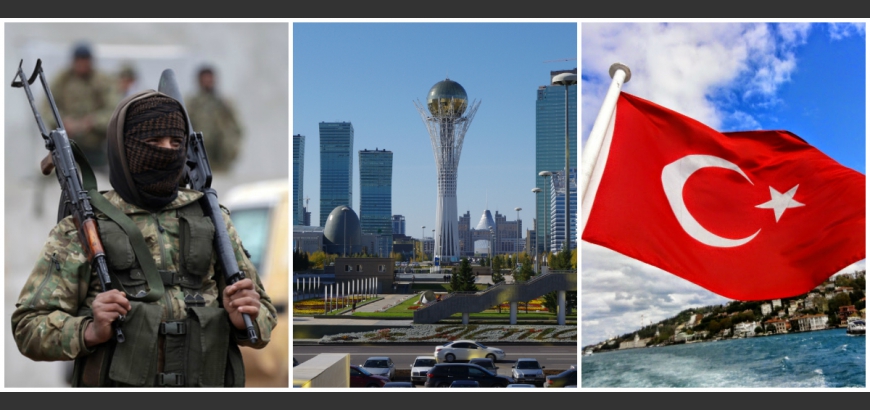Most of the key rebel groups in the Syrian opposition have decided their stance on participating in the Astana talks scheduled to be held on Jan. 23. The talks will include two Syrian delegations: one from the Syrian opposition under the leadership of Mohamed Alloush, head of the political office in Jaish al-Islam (Army of Islam), and the other from the Bashar al-Assad regime headed by the regime representative to the United Nations, Bashar al-Jaafari.
These decisions came after rebel groups held a number of meetings with Turkey in its capital Ankara last week, and according to an informed source who spoke to Alsouria Net, most opposition representatives who attended eventually agreed to go, after presenting their concerns and receiving adequate guarantees from the Turks.
The Ahrar al-Sham rebel group on Wednesday decided on its position not to attend the Astana talks for several reasons, most prominently the lack of a successful ceasefire and the continuing air strikes by Russia — one of the guarantors of the agreement. According to a statement published by Ahrar al-Sham, the group said it would not consider those opposition parties which will go to Astana traitors because disagreement was acceptable.
According to the source — who asked not to be named — the meetings occurred in Ankara between representatives of Ahrar al-Sham and Turkish officials around the group’s position on the Astana talks.
Alsouria Net also learned that the Saqour al-Sham group was the latest to agree to send a representative to Astana.
Alongside the rebel groups, Turkish officials from the Foreign Ministry, Defense Ministry and intelligence services attended the Ankara meetings, in addition to a Qatari representative.
The source described the discussions which occurred during the meetings as highly transparent and objective and said that the meeting was cordial and brotherly. He denied what had been published on social media about Turkish pressure on the groups to “force them” to go to the Astana talks.
The source said that the Turkish side had repeatedly confirmed during the meetings that Ankara was continuing its support to the Syrian opposition until the end, which was also confirmed by the Qatari representative when he spoke to the groups.
It seems that through the discussions which occurred at the meeting, the groups were convinced that the Assad regime would not implement any ceasefire agreement, which made them believe that the talks in Astana would not result in any desired outcomes that the regime would adhere to. The groups said the most important item that would occur during the talks would be to fix in place the ceasefire which was implemented Dec. 30, and which has been breached daily by the regime and its allies, according to the source.
The opposition was also concerned with the need for a guarantee for the implementation of the ceasefire. The source who spoke to Alsouria Net said that the groups who opposed Astana took two positions: Some of them believed that they had been marginalized and said they were tired of merely attending meetings and giving their approval to whatever resulted, while some of them did not come to a decision around Astana because there were internal divisions among the leadership of the group.
The rebel groups participating in the Astana talks will focus on several main points, most importantly installing a ceasefire and guarantees the regime will not advance into their areas, while also demanding that the political process and solution be based on the Geneva declaration.
Responding to Alsouria Net’s question around the reasons for the political opposition staying away from the Astana talks, the source said that this had been caused by the political opposition’s lack of influence and its inability to make achievements at the political and domestic level, in addition to the lack of much convergence between them and the rebel groups, which could help explain Russia’s insistence on making a deal with the forces that were active inside Syrian territory.
The Syrian opposition is not counting much on the success of this conference due to the lack of readiness by the regime, its militias, and Iran to adhere to the agreements which would end the conflicts and the war.
According to reports, European parties are trying to derail the truce due to their unhappiness with the Russian-Turkish rapprochement, given that Ankara is one of the guarantors of this truce. The United States is also unhappy with the talks, and the source said that the gap between Washington and Moscow around Astana was wide, which offered another challenge for the success of the Astana talks.
This article was translated and edited by The Syrian Observer. Responsibility for the information and views set out in this article lies entirely with the author.


